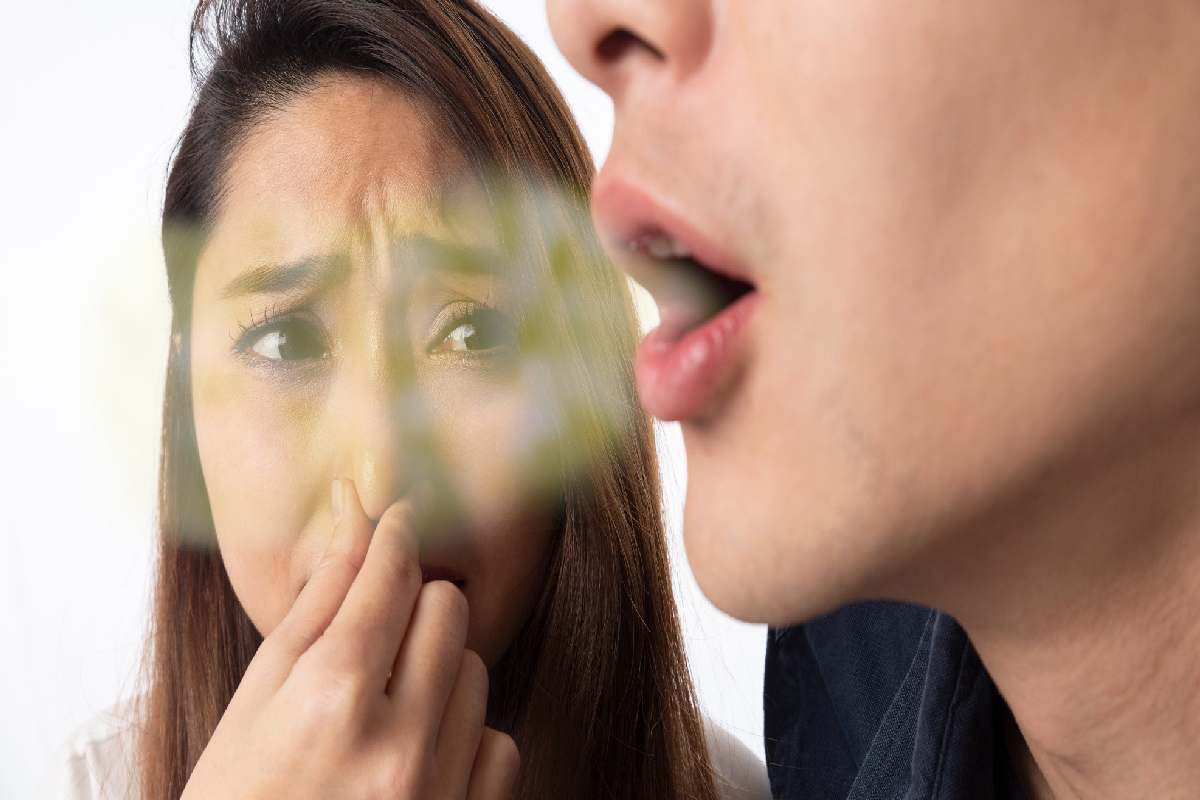Bad Breath – A source of discomfiture for those affected and those around them, bad breath (halitosis) is a fairly common problem. Many factors, including pathological ones, can cause this.
Table of Contents
What is Bad Breath?
Bad breath, also called halitosis, is a fairly common problem. Many factors, including extreme ones, can cause this. In 85 to 90% of cases, bad breath is due to the proliferation of bacteria in the mouth, especially on the tongue, which hosts 60% of the bacteria in the mouth in its gaps. It’s estimated that the language is responsible in almost half of the cases. Good oral hygiene and simple gestures can generally remedy this problem.
What are the signs of Bad Breath?
Many people are mistakenly convinced that they have bad breath. This phobia leads them to social isolation, which can have dramatic consequences. Check your general practitioner if you convince that you have bad breath, and those around you do not confirm your fears without reassuring you. A small test allows you to get an correct idea of your breath: lick the inside of your wrist with the central of your tongue, let it dry and smell your wrist.
What are the Causes of Bad Breath?
Many factors cause bad breath:
- inflammation of the gums or periodontitis, blight sores, or a dental abscess. smoking, which causes a whitish coating to form on the tongue, or excessive alcohol ingesting; foods that contain sulfur derivatives (onion, garlic, cabbage, curry, protein powders, etc.);
- the young;
- dry mouth;
- an infection of the throat (angina), tonsils or sinuses, even bronchitis;
- certain gastrointestinal diseases, for example, gastroesophageal reflux disease ;
- metabolic disorders, for example, diabetes;
- chronic renal failure.
What to do in case of a Bad Breath?
If you have it, approve impeccable oral sanitization: brush your teeth at least twice a day, use dental floss or interdental brushes at best once a day. Brush your tongue daily, or even twice a day, from back to front, with a soft brush bowl-shaped in chlorhexidine mouthwash. Promote salivation by sucking on sugar-free it mints or chewing sugar-free gum. Drink at least one and a half litres of water a day.
Other hygiene and dietary measures can be helpful in case of bad breath:
- If you wear removable dental appliances, remove them after each meal and brush them with a toothbrush reserved for this purpose. Eat regularly: chewing and accepting clean the mouth, stimulating salivation, and preventing foul perfumes.
- Eat a balanced diet, dropping foods that can cause it.
- If necessary, get help to quit smoking.
What does the dentist do in case of Bad Breath?
He tries to determine the cause of it. Then, he verifies the absence of cavities, gingivitis, periodontitis, canker sores, etc. Then, he can perform scaling and recommend specific hygiene measures to be applied every day.
If no cause can identify in the mouth, and if hygiene advice is not enough, the dentist can advise the person to consult their doctor in search of an infectious or metabolic cause for it.
So, what to do against bad breath?
There are several ways to fight against halitosis:
- Address local causes, primarily oral, but also ENT;
- Slow down “odour emitters”: tobacco, alcohol, food;
- Calm gastric acidity ;
- Make a general assessment if it persists despite all these measures.


